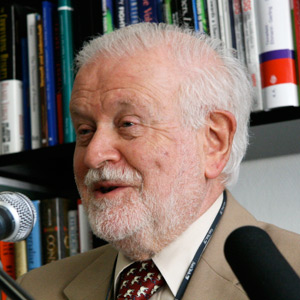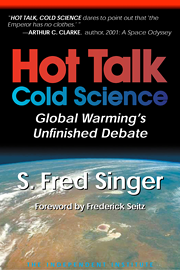Within the next few days, some 180 national delegations will assemble in Bonn, Germany, to try once more to settle the gory details of the Kyoto climate treaty, something they failed to do when they met in The Hague last November. In the meantime, President George W. Bush has definitely rejected this handiwork of former Vice President Al Gore, in spite of strong pressures from environmental activists, political opponents, and European statesmen.
Here is a scorecard:
- In July 1997, the US Senate voted unanimously, 95:0, against any treaty that would damage the economy of the United States and exempt most of the world from its strictures. The senators were mindful of the fact that mandatory restrictions on energy use would double the cost of electricity and add more than one dollar to the price of gasoline.
- In November 1997, the Kyoto Protocol was adopted by national delegations meeting in Kyoto, Japan, thanks mainly to the personal intervention of Al Gore. Details were left for later. The US signed it but Clinton never submitted it to the Senate for ratification.
- In 1999, more than 17,000 scientists signed a “Petition against the Kyoto Protocol,” sponsored by the Oregon Institute of Science and Medicine. They did so after reviewing a summary of the relevant peer-reviewed science on climate change and greenhouse effects.
- In 1999 also, the Cambridge University Press published a major study by a group of prestigious resource economists. “The Impact of Climate Change on the United States Economy” demonstrated beyond doubt that a doubling of CO2 and any resulting warming would produce positive benefits, especially for agriculture and forestry. This study has never been contested; yet it is hardly known to the general public
- In the 2000 campaign, candidate George Bush clearly stated his opposition to Kyoto, labeling it economically destructive and unfair, while Al Gore failed to respond convincingly.
- In June 2001, Robert Samuelson, a liberal economist and certainly no supporter of George Bush, wrote in the Washington Post (and International Herald Tribune):
“Greenhouse politics have long blended exaggeration and deception. Although global warming may or may not be an inevitable calamity (we don’t know), politicians everywhere treat it as one. Doing otherwise would offend environmental lobbies and the public, which has been conditioned to see it as a certain disaster. But the same politicians won’t do anything that would dramatically reduce global warming, because the obvious remedy—steep increases in energy prices—would be immensely unpopular.”
His essay “Enough Hot Air: Bush is Right About Global Warming” continues: “By rejecting the Kyoto Protocol, which would commit 38 industrial countries to control greenhouse emissions, Bush has discarded all the convenient deceits. He has brought more honesty to the global warming debate in four months than Bill Clinton did in eight years.”
He also agrees with Mr. Bush that the Kyoto commitments are “arbitrary and not based on science,” and that Kyoto is ineffective, costly, and unfair (by exempting some 140 nations).
Finally, the just-released UN-IPCC science report bases its conclusion about the existence of a “human influence on global warming” entirely on the claim that recent warming is “unusual.”
However, we can readily demonstrate that the IPCC Summary ignored firm geological evidence of major warming episodes in the past and, more importantly, downplayed data from weather satellites and other data sources that show no warming trend at all in the past 60 years! These findings are in clear contradiction to climate models, causing us to question their reliability and their scary predictions of a major future warming.
In addition to all these good reasons for rejecting Kyoto, who wants UN inspectors snooping on whether American citizens have reduced energy use by a mandated 35 percent within this decade?
The outlook for the Kyoto Protocol in Bonn and beyond: Definitely cloudy.









